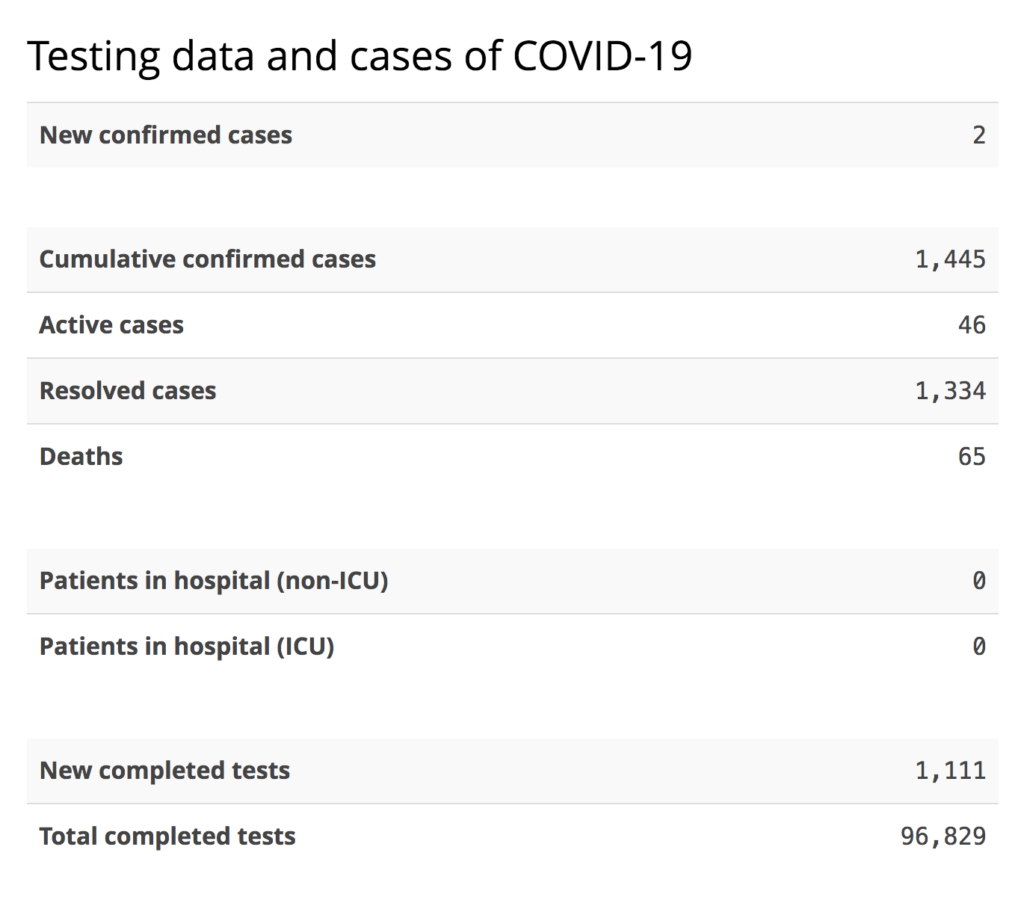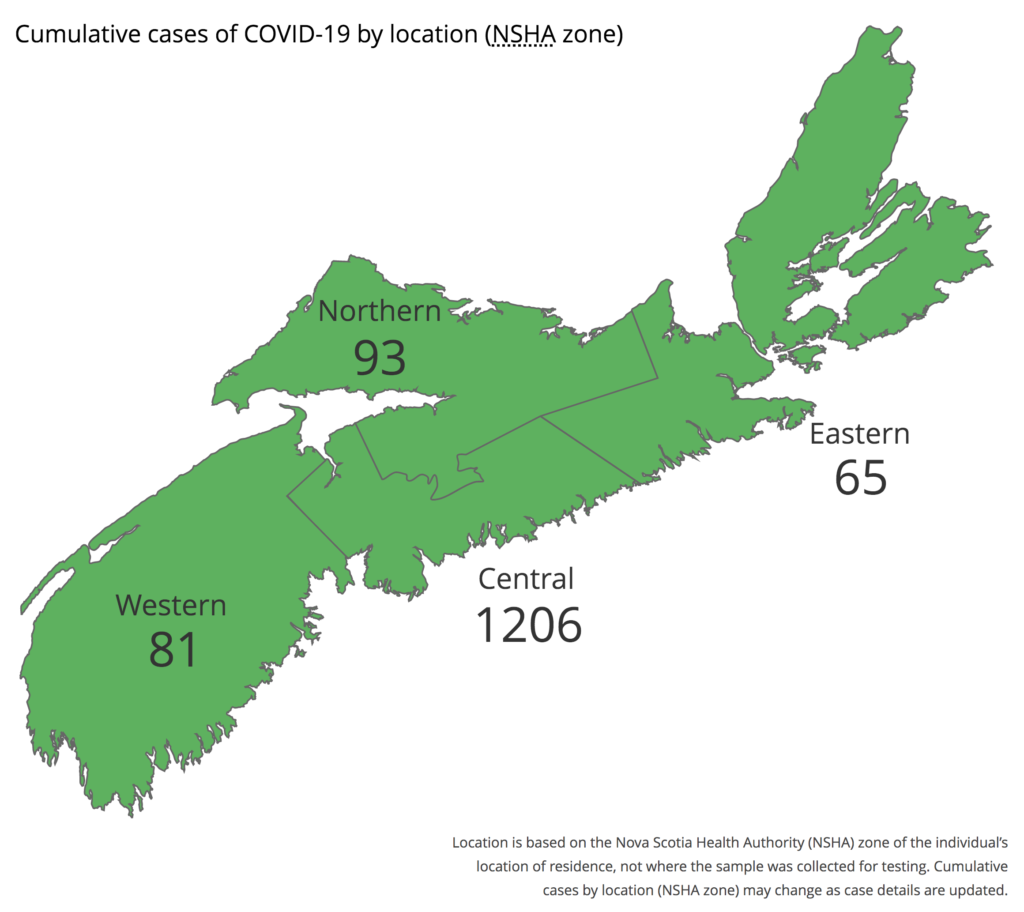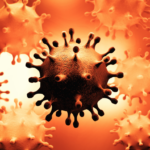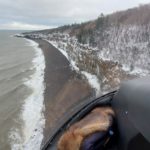As of today, Dec. 19, Nova Scotia has 46 active cases of COVID-19. Two new cases are being reported today.
One new case is in Western Zone and the other is in Eastern Zone. Both cases are related to travel outside of Atlantic Canada. The people are self-isolating, as required.
As confirmed publicly by Eskasoni Chief Leroy Denny, the case in Eastern Zone is in the Eskasoni First Nation community. Public health continues to work closely with Chief Denny to manage the case. Contact tracing is underway and at this point, there is no evidence of community spread.


“Though cases are down, COVID-19 is still here and we have to keep up our efforts to slow the spread,” said Premier Stephen McNeil. “Our public health team works hard to contain the virus, and by following all the public health protocols, we are helping them and protecting each other. And let’s not forget another important part of battling this virus – being kind to one another.”
Nova Scotia Health Authority’s labs completed 1,111 Nova Scotia tests on Dec. 18.
Since Oct. 1, Nova Scotia has completed 96,829 tests. There have been 356 positive COVID-19 cases and no deaths. No one is currently in hospital. Cases range in age from under 10 to over 70. Three hundred and 10 cases are now resolved. Cumulative cases may change as data is updated in Panorama.
“Our case numbers are going in the right direction, but we need to remain vigilant to ensure the virus does not spread during the holiday season,” said Dr. Robert Strang, Nova Scotia’s chief medical officer of health. “The best holiday gift we can give our loved ones is to protect each other by following all the public health measures, especially keeping our gatherings small.”
Visit https://covid-self-assessment.novascotia.ca/ to do a self-assessment if in the past 48 hours you have had or you are currently experiencing:
— fever (i.e. chills/sweats) or cough (new or worsening)
Or:
Two or more of the following symptoms (new or worsening):
— sore throat
— runny nose/nasal congestion
— headache
— shortness of breath/difficulty breathing
Call 811 if you cannot access the online self-assessment or wish to speak with a nurse about your symptoms.
When a new case of COVID-19 is confirmed, public health works to identify and test people who may have come in close contact with that person. Those individuals who have been confirmed are being directed to self-isolate at home, away from the public, for 14 days.
Anyone who has travelled outside of Atlantic Canada must self-isolate for 14 days. As always, any Nova Scotian who develops symptoms of acute respiratory illness should limit their contact with others until they feel better.
It remains important for Nova Scotians to strictly adhere to the public health order and directives – practise good hand washing and other hygiene steps, maintain a physical distance when and where required. Wearing a non-medical mask is mandatory in most indoor public places.
Rules concerning interprovincial travel within Nova Scotia, New Brunswick, Prince Edward Island and Newfoundland and Labrador have changed. The premiers of all four Atlantic provinces are cautioning against non-essential travel into neighbouring provinces. Currently, all non-essential travel into Prince Edward Island, New Brunswick and Newfoundland and Labrador requires a 14-day self-isolation. All public health directives of each province must be followed. Under Nova Scotia’s Health Protection Act order, visitors from outside Atlantic Canada must self-isolate for 14 days unless they completed their self-isolation in another Atlantic province.
Nova Scotians can find accurate, up-to-date information, handwashing posters and fact sheets at https://novascotia.ca/coronavirus .
Source: Release #notw



